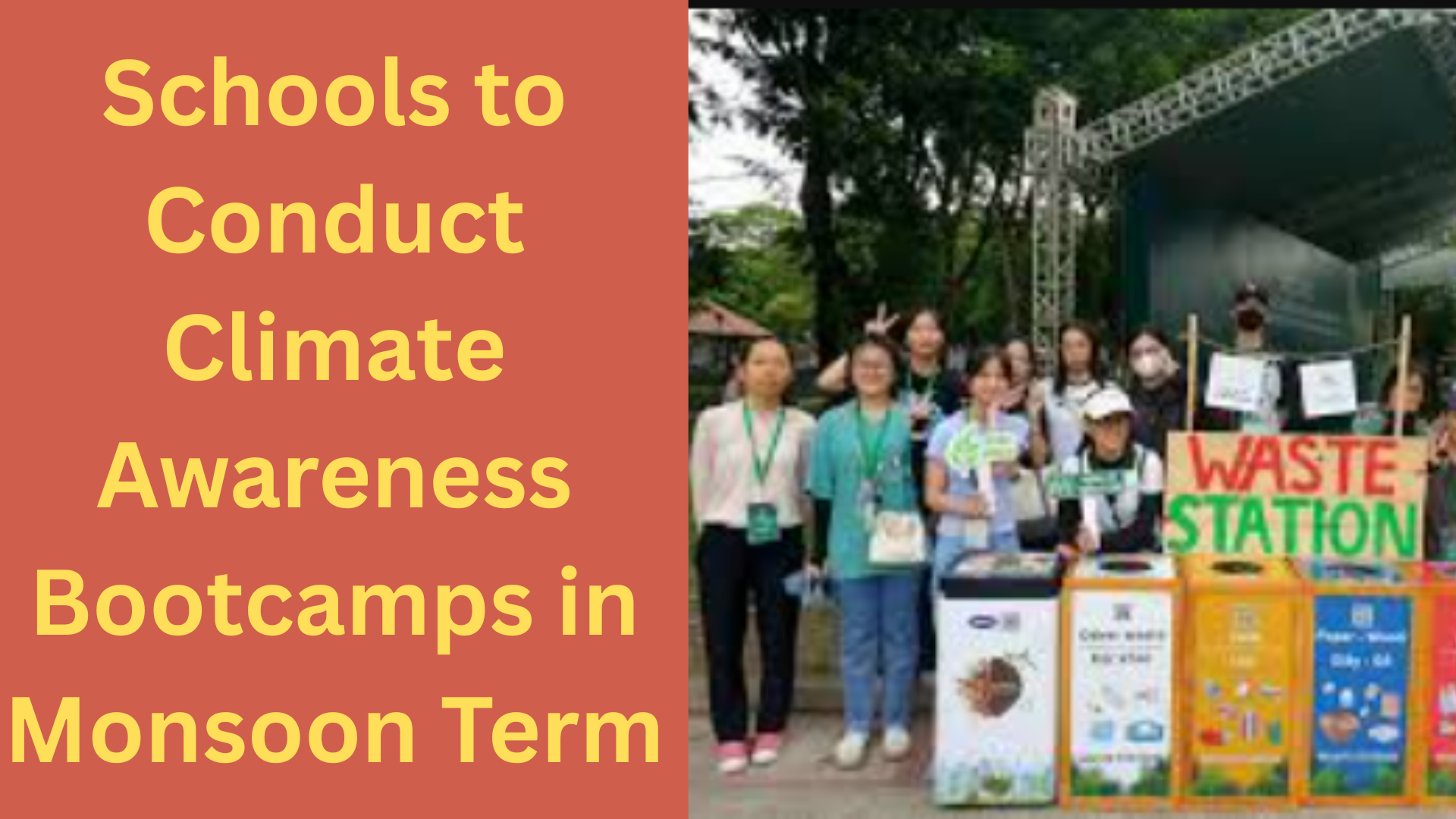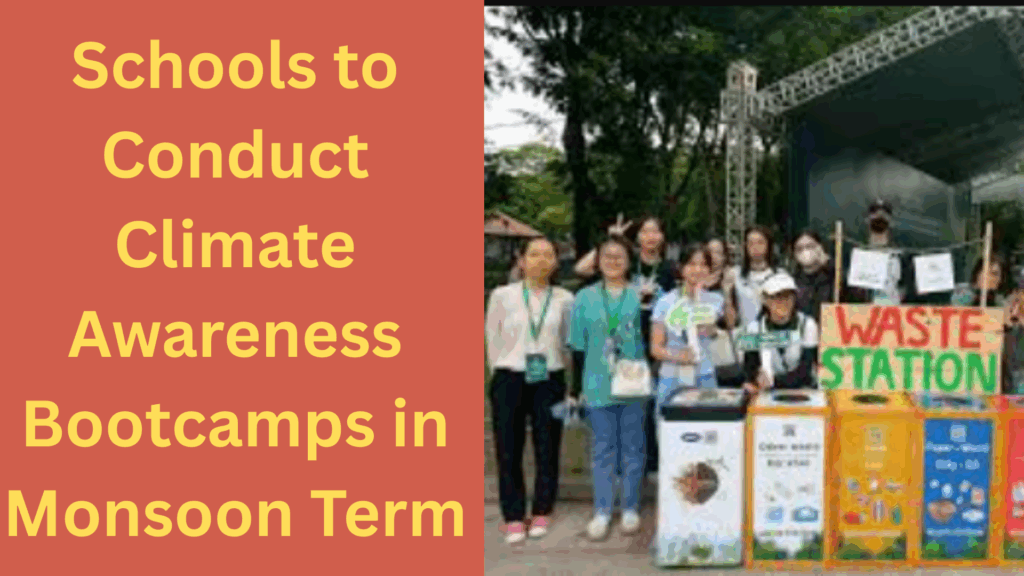The latest buzz states that several Schools to Conduct Climate Awareness Bootcamps in the Monsoon Term are scheduled; read this post and understand its benefits.
Schools to Conduct Climate Awareness Bootcamps in Monsoon Term
Starting July 2025, schools across India will organize Climate Awareness Bootcamps as part of a nationwide initiative led by the Ministry of Education in collaboration with the Ministry of Environment, Forest, and Climate Change (MoEFCC). These bootcamps, scheduled during the monsoon academic term, are aimed at sensitizing students to climate change, sustainability, and eco-conscious practices through experiential learning.
The move responds to growing concerns about rising temperatures, erratic monsoons, and climate-related disasters—and seeks to create informed young citizens capable of responding to the climate crisis proactively.
What Are Climate Awareness Bootcamps?
Climate Awareness Bootcamps are interactive, school-based programs that combine classroom learning with hands-on projects. We design these sessions for students from Classes 6 to 12, integrating them into existing environmental studies or general knowledge periods.

Key components include
- Workshops on climate change, carbon footprint, and biodiversity
- DIY eco-projects such as composting, vertical gardens, and recycling
- Guest lectures from scientists, local activists, and weather experts
- Live experiments and model-making to explain natural phenomena
- Local climate surveys by students in their own neighborhoods
The bootcamps will run for two weeks, with at least three hours per week dedicated to activities and assessments.
National Curriculum Integration and Assessment
The National Council of Educational Research and Training (NCERT) has issued revised modules and activity guides for schools to implement the program. While the bootcamps are not graded, participation will be mandatorily recorded in school report cards under the co-scholastic development category.
The curriculum focuses on:
| Module | Topics Covered |
|---|---|
| Understanding Climate Change | Global warming, greenhouse gases, IPCC reports |
| Local Environment Mapping | Neighborhood waste audits, water and air surveys |
| Action and Advocacy | Tree planting, slogan-writing, poster campaigns |
| Climate and Health | Impact of heatwaves, pollution, and nutrition |
| Sustainable Living | Water saving, energy conservation, green habits |
Teachers have been provided with training webinars and handbooks to ensure proper facilitation.
Benefits for Students and Schools
These bootcamps are more than just academic exercises—they aim to build real-world awareness and eco-responsibility among students. Key outcomes expected from this initiative include:
- Enhanced critical thinking on global and local environmental issues
- Development of green habits from a young age
- Improved teamwork and communication skills through group tasks
- Informed future citizens who can participate in climate solutions
For schools, successful implementation may qualify them for green school certifications under the Environment Ministry’s “Green Campus” tag. Some institutions may also receive grants for eco-friendly infrastructure upgrades.
Collaboration with Local Environmental Agencies
In an effort to localize impact, the Ministry has encouraged schools to partner with
- Municipal bodies for waste management drives
- Forest departments for tree-planting campaigns
- Disaster response agencies for resilience education
- Eco NGOs for mentorship and sustainability audits
This collaborative approach ensures that students can link theoretical knowledge with practical community-based experiences.
A Generation Ready for Climate Action
India’s new school-based climate bootcamps mark a forward-looking shift in education—focusing not just on marks, but on mindsets and environmental responsibility. With climate change now directly impacting daily life through heatwaves, floods, and droughts, equipping students with the right knowledge is both timely and essential.
By introducing these bootcamps during the monsoon—a season marked by climate volatility—the initiative seeks to ensure that students can witness and study real-time ecological changes, making learning both relevant and urgent.
As the country builds its future, nurturing a climate-aware generation could be India’s most powerful defense against environmental crises ahead.
We are extremely happy that you have read this post on our portal.





